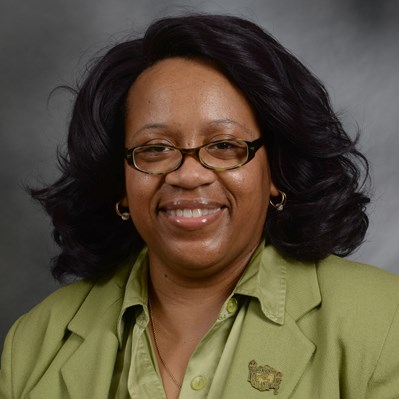
Executive Director of Financial Aid, Scholarships and Student Employment, Northeastern Illinois University
Chicago, Illinois
Office Representing: Financial Aid
In her role at Northeastern Illinois University, Maureen Amos develops and monitors the financial aid office budget, develops individual student budgets—known as the cost of attendance, and monitors college work-study expenditures, students' satisfactory academic progress, and federal and state grant expenditures. In addition to overseeing all administrative functions of the financial aid office, Amos is responsible for interpreting and applying federal laws and regulations, college policies and regulations, and state regulations relating to the delivery of student financial assistance. Amos, who has worked in the financial aid profession for over 20 years, holds a bachelor's degree and master's degree, both from DePaul University, and is currently working toward writing her dissertation.
How did you first get interested in or involved in higher education issues?
"I began my financial aid career after eight years in student activities and athletics at the community college level. I have a passion for providing access to higher education particularly for first-generation students," Amos said. "Further, I enjoy working in multiple capacities within the community environment so that I remain engaged and aware of social needs impacting students' 'out of the classroom' experience. I threw myself wholeheartedly into my financial aid career by becoming an active member of the National Association of Student Financial Aid Administrators (NASFAA) and joining its Student Aid Transcript Committee. I have been an active member of the financial aid profession since 1995."
Why did you apply to be a part of the Higher Education Committee of 50? What drew you to this opportunity?
"As I embark on my final steps leading to a dissertation after working 20 years in the financial aid profession, the development and implementation of policy solutions is in the forefront of my thinking. More specifically strategic initiatives that help educational leaders define why students persist and what systems and policies supported their success. I have spent my three-year leadership term with the Illinois Association for Student Financial Aid Administrators (ILASFAA)—first as president-elect, then as president, then as past-president—creating a collaboration between the state financial aid, admissions, bursar and registrar associations because I have discovered that having these offices work closely together is a critical factor in student persistence. ILASFAA is having conversations on co-sponsoring professional development with the registrars' association. When I saw who would make up [Higher Education Committee of 50] committee it seemed to be right up my alley!"
Leadership roles with professional associations: